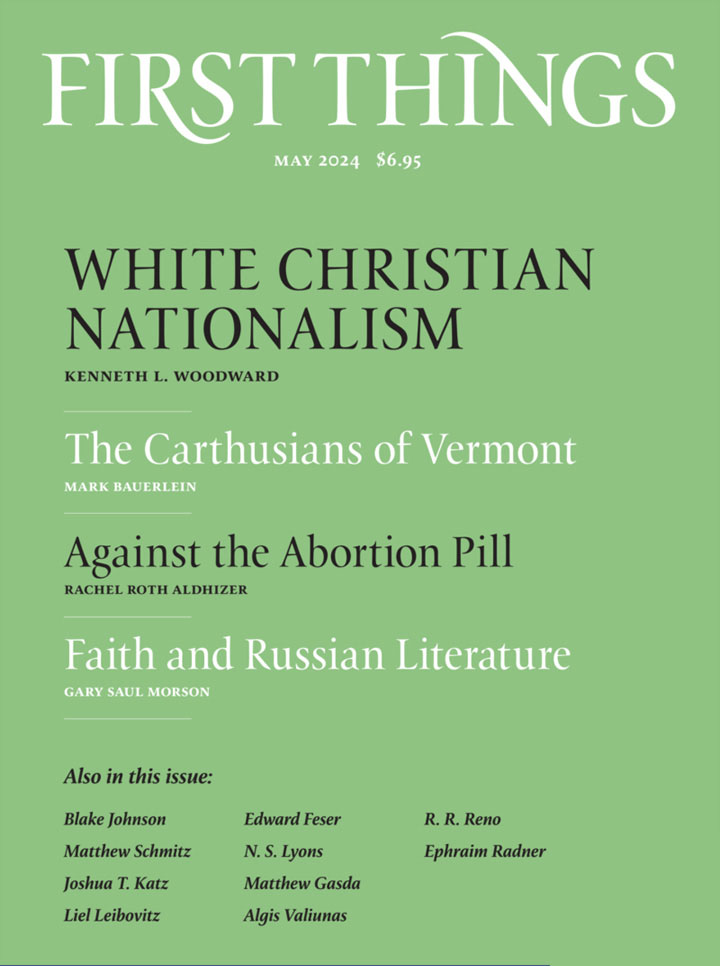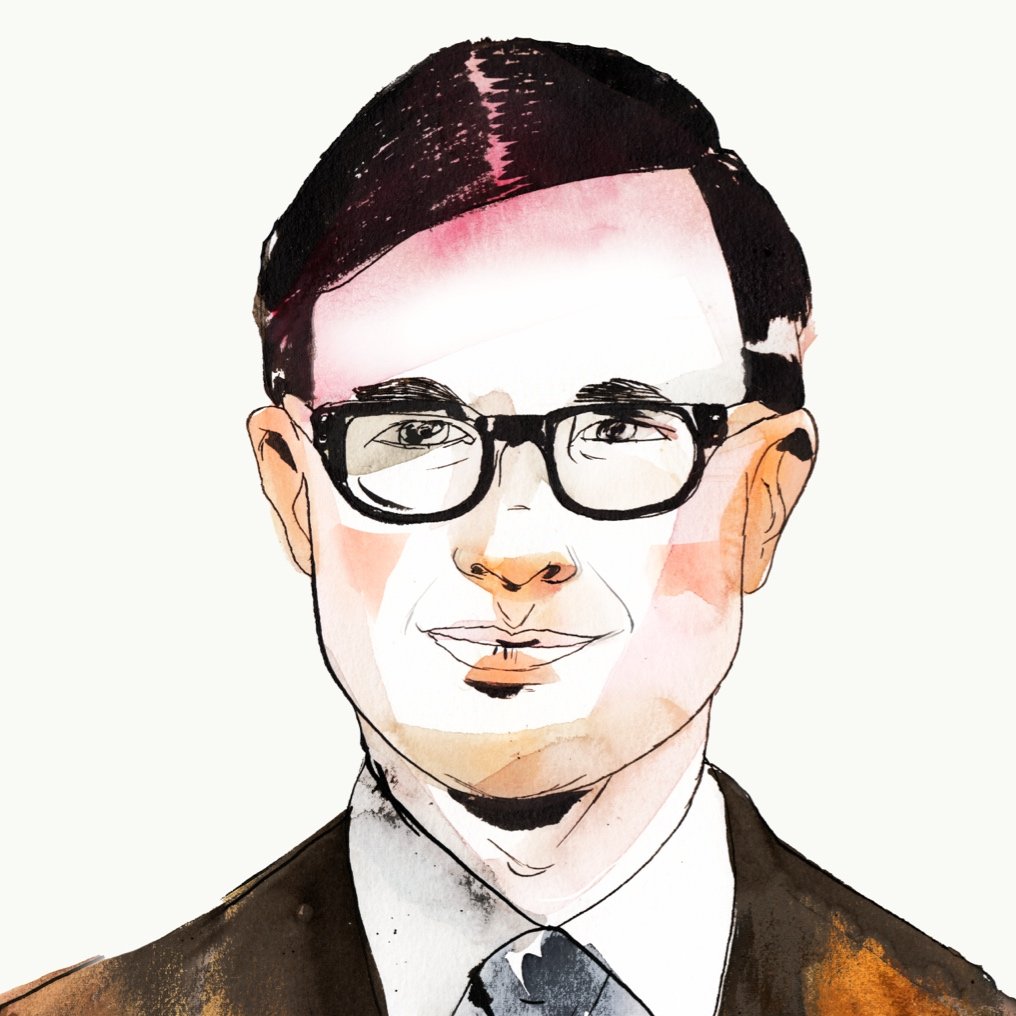For at least a generation, the phrase “religious right” has evoked a style of politics marked by hortatory rhetoric, foreign-policy interventionism, and support for the free movement of people and goods. This version of Christian politics reached its zenith during the George W. Bush administration, when a glut of books warned that theocracy was impending in America.
In the event, things worked out differently. Not only did the Bush-era Christian right fail to take over America; in 2016 it lost control of its own party. Donald Trump won the Republican nomination, and then the presidency, with a way of speaking that was more impish than moralizing. He made no pretense of being committed to Christian sexual morality. And he challenged his party’s assumptions on immigration, trade, and foreign policy.
Something important has changed in the way religious Americans approach politics. Free trade and open borders are out; economic moderation and immigration restriction are in. Along with a shift in policy, there has been a shift in tone, reflecting a growing sense of alienation. To understand the reasons for this transformation, I sat down with JD Vance, the young senator from Ohio and author of the bestselling memoir Hillbilly Elegy, in his senate office. He is perhaps the most eloquent champion of a new Christian approach to politics—one that is less conventionally conservative, and more populist.
Vance’s populism has two major influences. One is the commonsense outlook of his Mamaw, a central figure in his memoir. She wasn’t a liberal, but she was turned off by what she saw as the preachiness and narrowness of the religious right. “When the moral majority was more powerful, my Mamaw had a certain scorn for it,” Vance says. The other is his understanding of Christian politics. “When we think about Christian conservatism, we think of sanctity of marriage, sanctity of life,” he tells me. “Of course these things are important and I certainly believe the Church’s teachings on all of these things. And yet, there’s an entire Christian moral and economic worldview that is completely cut out of modern American politics, and I think it’s important to try to bring that back.”
Vance found an echo of his Mamaw’s outlook, and a reflection of his own experience, in Catholic social teaching. Growing up without a father in the house convinced Vance of the importance of marriage, a principle religious conservatives have always insisted upon. But he noticed that those same conservatives were overlooking some of the factors that contribute to broken families. “I saw a lot of marriages fall apart,” Vance says. “It wasn’t always because of financial reasons, but that was a big part of it. So if you believe in the sanctity of marriage, one of the things you want is families that are more stable financially.”
Vance extends this emphasis on stability to other areas of economic and social life. “The core Christian insight into politics is that life is inherently dignified and valuable,” he says. “If you actually believe that, you want certain legal protections for the most vulnerable people in your society, but you also want to ensure that workers get a fair wage when they do a fair job. You want to make sure that people don’t have their town poisoned because they happen to live next to a railway line”—a reference to the rail disaster in East Palestine, Ohio.
Since his election, Vance has sought to translate his populist vision into legislative reality. While staking out uncompromising stances on issues such as immigration and aid to Ukraine (he opposes both), he has surprised some observers with his eagerness to collaborate with colleagues with whom he otherwise disagrees. He has sponsored a rail safety bill with Sherrod Brown, limits on bank executive compensation with Elizabeth Warren, and the elimination of corporate-merger tax breaks with Sheldon Whitehouse—all Democrats.
Standing behind these policy questions, on which Christians may in good faith disagree, is an issue facing religious Americans of all kinds. Writing in 1987, a Lutheran pastor named Richard John Neuhaus announced the arrival of “the Catholic moment.” Prominent voices inside and outside the Church had long questioned whether it was possible to be a faithful Catholic and a loyal American. Though he acknowledged certain abiding tensions, Neuhaus denied that there was any necessary contradiction between the two allegiances. More than that, he insisted that the Catholic Church had the opportunity and obligation to accept “its rightful role in the culture-forming task of constructing a religiously informed public philosophy for the American experiment in ordered liberty.”
Is that “culture-forming” influence still possible today—for Catholics, and for religious Americans generally? America is secularizing and so, some people believe, is the American right, which once claimed to stand for faith and family.
Religious conservative leaders were among Trump’s most outspoken opponents in 2016—and a small but loud band of anti-Christian social-media users were among his most outspoken supporters. Some observers concluded that Trump’s rise demonstrated that the right was exchanging its religiously inflected outlook for a crueler, narrower ideology. In February 2016, New York Times columnist Ross Douthat wrote: “If you dislike the religious right, wait till you meet the post-religious right.” His words captured a widely shared assumption that the rise of Donald Trump signaled not only the death of the religious right, but the birth of an irreligious right animated by white racial grievance.
It is clear now that this assumption was wrong. The old religious right may have suffered a fatal blow in 2016. But what succeeded it was not a post-religious racialist party, as some feared and others hoped. On the contrary: Donald Trump attracted higher rates of support from minorities than had the previous Republican nominee, Mitt Romney. As the Republican pollster Patrick Ruffini has noted, between 2012 and 2020, Hispanic support for the GOP increased by 19 points, African-American support by 11, and Asian-American support by 5. Since Trump’s emergence, the parties have become less—not more—racially polarized.
Meanwhile, religiosity has become a more powerful predictor of voting habits. Evangelicals, Catholics, and black Protestants all supported Trump at higher rates in 2020 than in 2016, even as Trump’s support fell among atheists and agnostics. Pundits who once warned that Trump’s GOP was preparing to establish white supremacy now are more likely to denounce its ambitions as “Christian nationalist.” Whatever else one makes of this charge, it implies an acknowledgment that a post-religious right has failed to materialize.
If religious conservatism is dead, then religious populism has emerged in its place. There are important continuities, but religious populism is more pronounced in its mistrust of elites, less concerned with observing their niceties, and more eager to challenge their priorities as expressed in America’s foreign policy commitments, trade agreements, and approach to immigration.
No one represents this shift better than Vance. His current elevated status, no less than his humble beginnings, gives him a unique window into America’s class divides. Since arriving in the Senate, Vance has become only more convinced that America’s elites are not to be trusted. “They’re actively scornful of the people who made me who I am,” he tells me. “My family and my friends and my community are very, very aware of this. They are very aware of the fact that even their own representatives don’t actually like them very much.”
In Vance’s telling, this attitude isn’t confined to one political party. It informs a bipartisan consensus on some of the most important questions of American policy. “Just a couple of weeks ago . . . somebody said something to the effect of, ‘How could our base possibly know what’s necessary to engage in foreign affairs, or what’s at stake with the Russia–Ukraine conflict?’”
Vance suggests that this disdain for the democratic competence of Americans is closely tied to contempt for their religious views. “You hear this person on MSNBC claim that a view that came from the deist Thomas Jefferson’s Declaration of Independence—that our rights came from God—is Christian nationalism. It’s sort of absurd.”
He believes that America remains more religious than people acknowledge—it’s the elites who have changed. “If you look at one measure of religious participation, just church membership in 1980 versus 2023 versus 1840, the country is not substantially less religious today . . . than it was 150 years ago.” Yet there is a profound obstacle facing anyone who aspires to be unapologetically both Christian and American. It is the conviction, shared by many of our elites and increasingly endorsed by the government, that anyone who dissents from progressive ideas on gender and sexuality is an enemy not only of progress but of the United States. Underlying this belief is an identification of America with the ideals represented by the Progress Pride flag.
Vance’s religious populism stands in opposition to a simply creedal conception of the United States. “We have to recognize that America is not just a principle. It is a group of people. It’s a history. It’s a culture. And yeah, part of that story is that people can come and assimilate,” Vance says. “But if your attitude is that . . . the only thing you need to become an American is to believe that with a little bit of hormonal therapy a man can become a woman, then you’re making it so that massive numbers of your own country either need to be re-educated, or need to be cast out of the political community.”
Vance says that the identification of the American project with progressive ideals is “a recipe for colonizing your own people.” When American leaders justify foreign conflicts in the name of LGBTQ rights (as has happened with the war in Ukraine), they are articulating a casus belli against much of their own population. The result is “militaristic adventurism overseas, war with your own people at home.”
Religious populism was not magically conjured by Trump. It has come to the fore because religious believers are increasingly excluded from important institutions. It is a response to social and legal developments championed by progressives and endorsed by America’s leading institutions. Justice Samuel Alito acknowledged these forces in February when he observed that a decision to exclude potential jurors who objected to same-sex marriage from a court case involving a lesbian woman “exemplifies the danger that I anticipated in Obergefell v. Hodges, . . . namely, that Americans who do not hide their adherence to traditional religious beliefs about homosexual conduct will be ‘labeled as bigots and treated as such’ by the government.”
So long as religious believers are disfavored for their beliefs by important American institutions, they will skew anti-institutional and populist. They will seek to challenge the elite and its orthodoxies. Of course, certain religious groups in America—notably Catholics and Jews—have a long history of exclusion. But now a similar situation is faced by traditional believers of all kinds, including Protestants. If they want to exercise the duties of citizenship rather than withdrawing from politics altogether, they will need to look to leaders like JD Vance.
Bladee’s Redemptive Rap
Georg Friedrich Philipp von Hardenberg, better known by his pen name Novalis, died at the age of…
Postliberalism and Theology
After my musings about postliberalism went to the press last month (“What Does “Postliberalism” Mean?”, January 2026),…
Nuns Don’t Want to Be Priests
Sixty-four percent of American Catholics say the Church should allow women to be ordained as priests, according…



